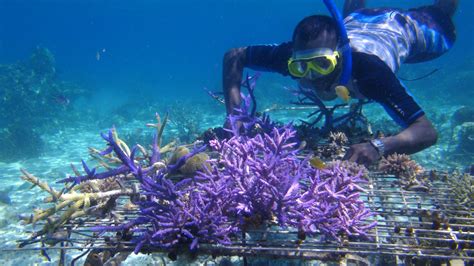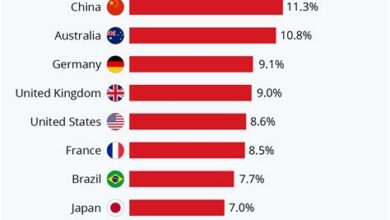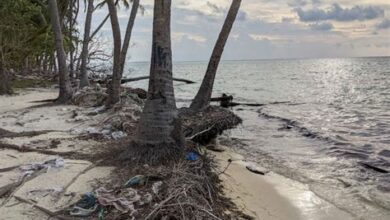Coral Reef Conservation Efforts in the Maldives

Discover the threats to coral reefs and learn about successful community-based conservation initiatives, government policies, sustainable tourism, and inspiring reef restoration stories.The Maldives, renowned for its stunning coral reefs and crystal-clear waters, is facing numerous threats to its marine ecosystems. As a blogger passionate about conservation efforts, I feel compelled to shed light on the state of coral reefs in this breathtaking archipelago. In this blog post, we will discuss the various challenges that coral reefs in the Maldives are facing, including the impact of climate change, overfishing, and pollution. Additionally, we will explore the community-based conservation initiatives and government policies and regulations that have been put in place to protect and restore these vital ecosystems. We’ll also delve into the role of sustainable tourism in coral reef conservation and highlight success stories in reef restoration efforts. Join me as we delve into the ongoing efforts to protect and preserve the magnificent coral reefs of the Maldives.
Threats to Coral Reefs
Coral reefs face a myriad of challenges and threats in today’s world. One of the biggest threats to coral reefs is climate change. Rising sea temperatures due to global warming can cause coral bleaching, a phenomenon where corals expel the algae living in their tissues, causing them to turn completely white and ultimately leading to their death. The increased frequency and intensity of storms as a result of climate change can also physically damage coral reefs, leading to their destruction.
Another major threat to coral reefs is overfishing and destructive fishing practices. Overfishing can disrupt the delicate balance of marine ecosystems, leading to a decline in the populations of key reef species. Destructive fishing practices such as bottom trawling and the use of explosives can directly damage coral reefs, breaking them apart and destroying their structure.
Pollution from land-based sources is also a significant threat to coral reefs. Runoff from agricultural and urban areas can introduce pollutants such as sediment, nutrients, and chemicals into the marine environment, leading to degraded water quality and negatively impacting the health of coral reefs. In addition, the improper disposal of waste and plastic pollution can directly harm coral reefs and the marine organisms that depend on them for survival.
Community-Based Conservation Initiatives
Community-based conservation initiatives play a crucial role in protecting and preserving coral reefs in the Maldives. Local communities have a deep connection to the marine environment and are often the first to notice changes in the reef ecosystem. Through collaborative efforts with NGOs, government agencies, and research institutions, communities are actively involved in monitoring and managing coral reefs. This bottom-up approach not only empowers local residents but also fosters a sense of ownership and responsibility for the marine environment.
One example of a successful community-based conservation initiative in the Maldives is the establishment of marine protected areas (MPAs). By engaging with local communities and traditional fishers, MPAs have been designated to safeguard crucial habitat for reef species. These protected zones are managed by community members, who enforce regulations and monitor the health of the coral reefs within their jurisdiction. This grassroots approach has proven effective in reducing destructive fishing practices and promoting sustainable resource management.
Furthermore, community-based conservation initiatives often incorporate education and outreach programs to raise awareness about the importance of coral reef ecosystems. By involving schools, youth groups, and local leaders, these initiatives are able to instill a sense of environmental stewardship and inspire future generations to champion reef conservation. Through collaborative efforts and a bottom-up approach, community-based conservation initiatives are making significant strides in safeguarding the fragile coral reefs of the Maldives.
Government Policies and Regulations
Government policies and regulations play a crucial role in the conservation of coral reefs in the Maldives. The Maldivian government has implemented strict regulations to protect its coral reefs from various threats such as overfishing, pollution, and climate change. These regulations include designated marine protected areas where fishing and other harmful activities are strictly prohibited in order to preserve the delicate ecosystem of the reefs.
In addition to marine protected areas, the government has also implemented strict fishing regulations to prevent overfishing and depletion of reef fish populations. This includes limits on fishing methods, gear, and seasons in order to ensure sustainable fishing practices that do not harm the coral reef ecosystem.
The government has also implemented environmental impact assessments for any development projects near coral reefs to ensure that they do not cause harm to the reefs. This includes strict regulations for coastal construction, waste management, and sewage treatment to prevent pollution and sedimentation that can harm the delicate balance of coral reef ecosystems.
Role of Sustainable Tourism
Sustainable tourism plays a crucial role in the conservation and preservation of coral reefs in the Maldives. The implementation of sustainable tourism practices ensures that the natural resources are used in a responsible manner, minimizing the impact on the delicate marine ecosystems. By promoting sustainable tourism, the government and local communities can work together to protect the coral reefs and their surrounding environments.
Furthermore, sustainable tourism initiatives in the Maldives can help raise awareness about the importance of coral reef conservation among tourists and local residents. Through educational programs and eco-friendly activities, visitors can gain a deeper understanding of the threats facing coral reefs and the steps that can be taken to mitigate these challenges.
In addition, sustainable tourism also provides economic opportunities for local communities, thereby reducing the reliance on harmful practices such as overfishing or destructive fishing methods. By creating alternative livelihood options through sustainable tourism, communities can contribute to the long-term preservation of coral reefs while also improving their socio-economic well-being.
Success Stories in Reef Restoration
Reef restoration efforts in the Maldives have yielded some remarkable success stories in recent years. Through a combination of innovative techniques and community involvement, local organizations have managed to revive and rehabilitate damaged coral reefs, giving hope for the future of these vital marine ecosystems.
One such success story is the Baa Atoll Biosphere Reserve, where a comprehensive restoration project has led to the recovery of more than 70% of damaged coral reefs. By actively engaging local communities and tourists in conservation efforts, the reserve has not only restored the reefs but also raised awareness about the importance of preserving these fragile ecosystems.
Another inspiring example is the work of the Marine Research Centre in collaboration with international partners, which has successfully implemented large-scale coral transplantation programs. By cultivating coral fragments in nurseries and then transplanting them onto degraded reefs, this initiative has significantly contributed to the recovery of coral cover and biodiversity in the region.





